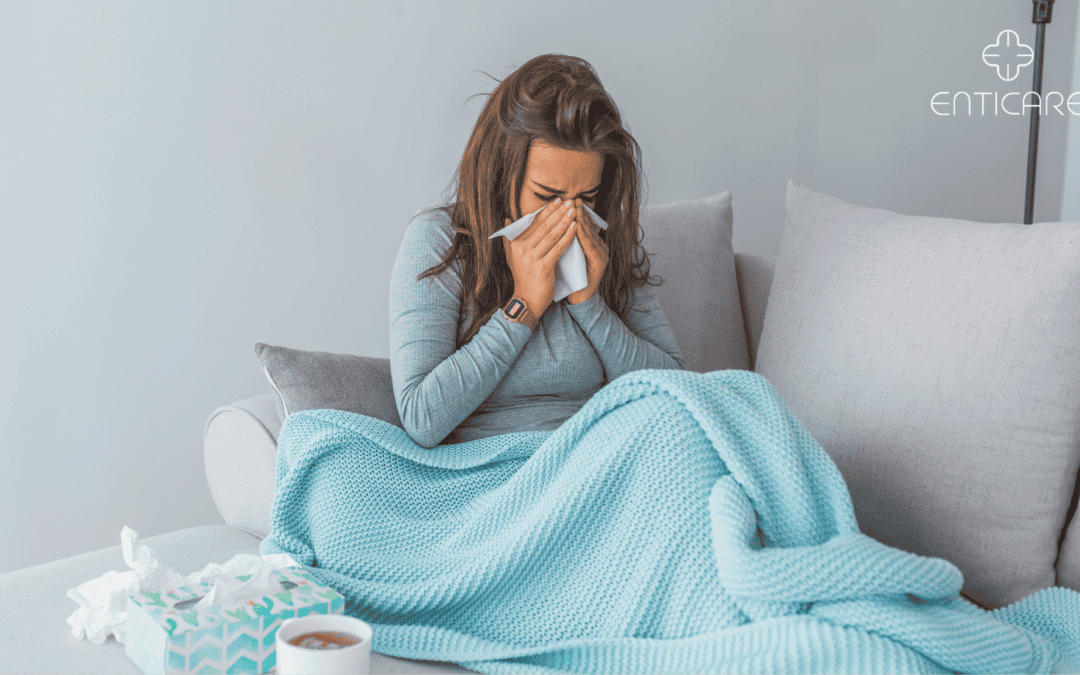A stuffy nose, scratchy throat, and that familiar achy feeling – a cold can leave you feeling miserable. But for individuals with sleep apnea who rely on CPAP therapy, a common question arises: should I still use my CPAP if I’m sick? This blog unpacks this dilemma using the AIDA format, addressing your concerns and offering solutions for a more comfortable CPAP experience during a cold.
Imagine this: you’re battling a cold, struggling to breathe through a congested nose. The thought of using your CPAP machine, with its mask and pressurized air, seems daunting. However, abandoning CPAP therapy during a cold could worsen your sleep apnea symptoms and leave you feeling even more drained.
Sleep apnea is a serious sleep disorder characterized by episodes where breathing pauses or becomes shallow. CPAP therapy delivers a steady stream of pressurized air to keep your airway open during sleep, preventing these breathing interruptions and promoting restful sleep.
While having a cold can make using your CPAP uncomfortable, here’s the key takeaway: stopping CPAP therapy is generally not recommended. Here’s why:
- Untreated Sleep Apnea: Even with a cold, untreated sleep apnea can lead to fragmented sleep, daytime fatigue, and increased health risks like high blood pressure and heart disease.
- Residual Benefits: Studies suggest that even if a cold disrupts your CPAP use for a few days, the therapy’s residual benefits may still help improve sleep quality.
If you’re experiencing a cold and contemplating ditching your CPAP, understanding the symptoms and potential solutions is crucial. Here’s a breakdown:
- Symptoms of a Cold: These can include, but aren’t limited to, a runny or stuffy nose, sneezing, sore throat, coughing, and mild fever.
- Challenges with CPAP Use: A stuffy nose can make wearing a mask uncomfortable, and a cough or congestion might disrupt your sleep.
Here are some tips to manage a cold and make using your CPAP more comfortable:
- Manage Your Cold Symptoms: Over-the-counter medications like decongestants and antihistamines can help alleviate symptoms like a stuffy nose and watery eyes. Consider consulting your doctor for appropriate medication recommendations.
- Maintain Proper CPAP Hygiene: Regularly clean your CPAP mask, tubing, and humidifier (if you use one) to prevent the spread of germs and minimize irritation.
- Optimize Mask Fit: Ensure your mask fits snugly but comfortably. Leaks can disrupt therapy and worsen congestion. Also, consider using a full face mask while battling your cold. This will make it possible to breathe through the mouth without compromising your therapy. Consult your CPAP provider for fitting assistance if needed.
- Consider a Humidifier: Using a humidifier with your CPAP can add moisture to the air, potentially easing congestion and making breathing more comfortable.
- Nasal Spray: A saline nasal spray can help moisten the nasal passages and clear mucus buildup.
- Elevate Your Head: Sleeping with your head slightly elevated can improve drainage and ease congestion.
When to See a Doctor:
While managing a cold at home is often possible, consult your doctor if:
- Your symptoms worsen or don’t improve after a week.
- You experience a high fever (above 100.4°F or 38°C).
- You have severe facial pain or earache.
- You experience difficulty breathing or shortness of breath.
Having a cold doesn’t mean abandoning your CPAP therapy. With some adjustments and strategies, you can manage your symptoms and continue receiving the benefits of CPAP treatment. Remember, consistency is key. By prioritizing your sleep health and addressing any concerns with your doctor, you can navigate a cold and get back to restful nights. And if you have any questions, don’t hesitate to contact Enticare or call us at 480-214-9000, our expert team is here to assist you every step of the way.

